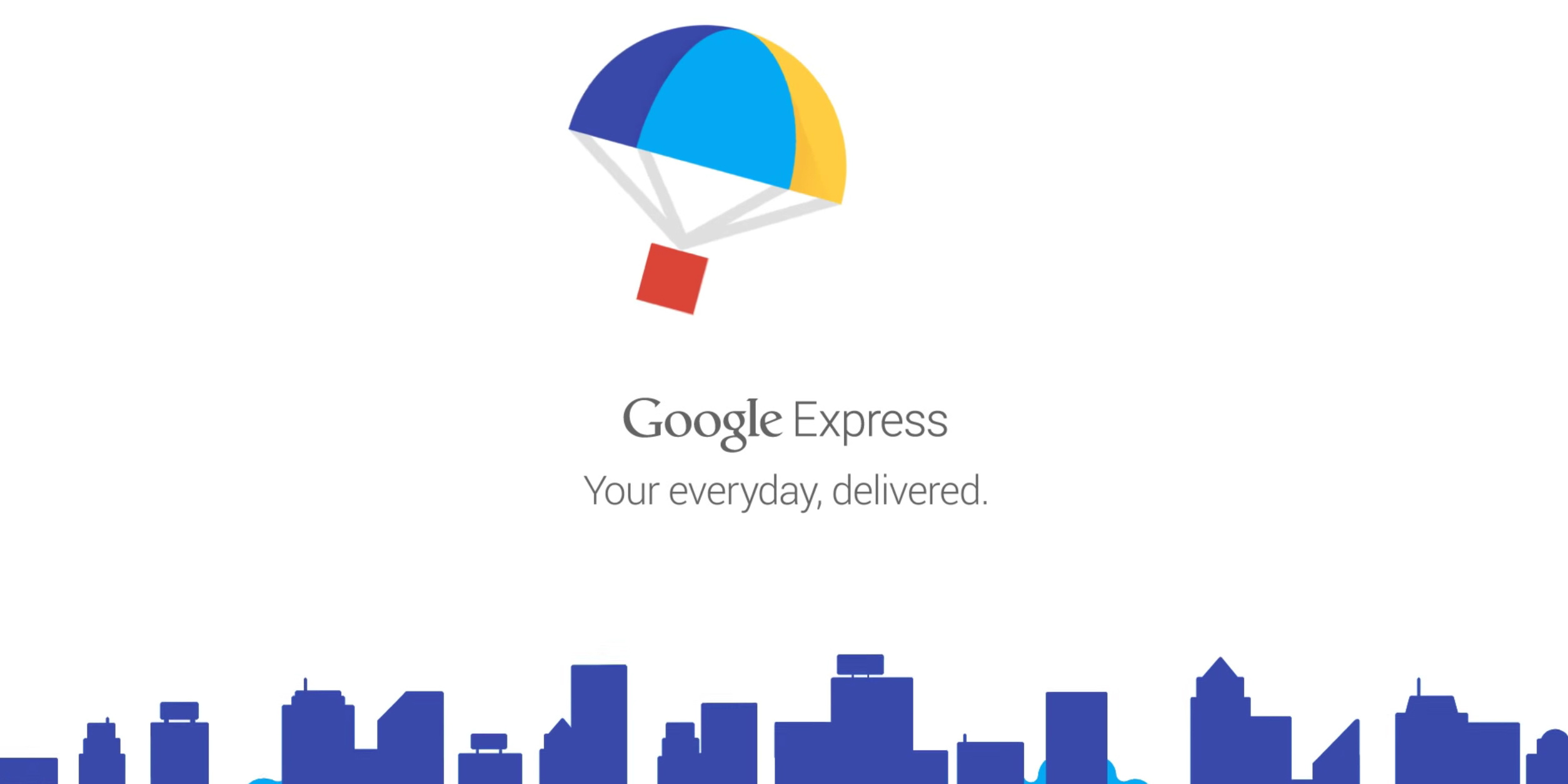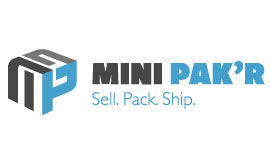Amazon Alternatives: A Look At The Competition
Amazon makes up a dominant portion of our online sales — so much so that we often don’t even bother looking beyond it to try and find better deals or more convenient service. Many businesses find it easier to simply sell through Amazon Marketplace rather than trying to compete on their own. However, there are still companies fighting for sunlight that offer either a superior alternative to Amazon, or simply an enhanced experience on the Amazon website itself.
With Amazon delivering everything from diapers to fresh fruit at breakneck speeds straight to our doorsteps, it’s understandable how the online retailer dominates our attention. In the last two decades, Amazon has become the go-to online retailer for tens of millions of Americans with their reach growing by the day. Truly, you’d be hard-pressed to find an item they don’t sell.
They boast 43 percent of our online sales, accounting for more than half of the United States’ yearly growth in that area. There are few corporations with the firepower to challenge them in any direct way (Walmart being the primary example). Amazon even has a holiday, and they’ve got their eyes to the skies as they prepare to fill them with delivery drones.
The sheer efficiency, scope, and speed of service make it incredibly difficult for other sellers to compete, but it’s not impossible. Savvy businesses are still finding niches like selling clearance items, compiling goods for price comparison by scouring the Internet, and sourcing things from places Amazon has trouble reaching, like grandma’s basement, for example.
While this isn’t an exhaustive list, these competitive alternatives to Amazon have a few methods you can learn and employ in your ecommerce endeavors.
Wikibuy

Image Source: Glozine.com
To better understand our first Amazon alternative, I’d like you to come with me to the savannahs of Africa. Imagine you’re a big, leathery, elephant; I’ll be one too if that makes it easier for you. We’re having a great time sucking water out of lakes and spending the day consuming hundreds of pounds of raw vegetation. It’s a rather ordinary day until you notice something in the sky: oxpeckers.
The little birds blot out the sun as they alight on your back and refuse eviction. I get away and observe from a distance, while you resign yourself to having a flock of beaky buddies on top of you. After some time, you notice that they’re eating ticks and parasites off your back. While it probably feels a bit itchy and annoying, you’re not going to die from it.
Wikibuy is a lot like the majestic oxpecker, relying entirely on the great behemoth Amazon for survival. Through its Google Chrome extension, it seamlessly integrates itself with your browser and waits for you to visit an item page. Once there, it scours the Internet for better deals, many of which end up coming from eBay (more on them later). However, some of these suggestions you would have never been aware of without Wikibuy.
If the extension finds a better deal, a little button will pop up under the Amazon “add to cart” button, prompting you to check out the other website. It takes you to a side-by-side comparison of the two listings, with all the important stuff like shipping costs and included tax. Wikibuy then makes its money by obtaining small fees from the companies you end up switching to when you find a lower price — assuming you buy from them.
If preserving the integrity of your wallet is your modus operandi, Wikibuy is a great low-effort option with no real downside. One way Amazon still shines through is, of course, their two-day shipping. Although there is often a better deal out there, few sites are capable of giving you the guaranteed fast shipping of the Bezosian Empire. If you’re the impatient type, you might find yourself bypassing Wikibuy more often than not. Regardless, it’s free, unobtrusive, and never a bad idea to tack onto your browser especially if you’re looking to build upon your patience and savings.
Google Express

Image source: Google Express
Amazon may be the top dog in ecommerce right now, but competitors are always waiting in the wings, eager to close the gap and overtake first place. Google Express is one such competitor, and it may soon have the ability to take Amazon directly.
Google’s ecommerce platform functions more like a marketplace, acting as a conduit for other companies to reach consumers as opposed to Amazon’s approach of selling most things under their brand. Google Express is drawing retailers because it uses its vast search engine data to tactically promote goods, as well as create an incredibly intuitive, customized shopping experience for consumers. They’ve been accumulating an impressive list of partners lately, including a signed deal with Walmart in late August.
This partnership is part of the most recent move by ecommerce veteran and CEO of Walmart Ecommerce U.S. Marc Lore; a partnership between Amazon’s arch-rival and Google, the corporation with quite possibly the largest store of consumer data in the world, has the potential to send shockwaves through the entire world of ecommerce. Other companies selling goods through Google Express include Costco, Walgreens, Toys R’ Us, and many of Walmart’s recent acquisitions like Moosejaw.
Even the New York Times says that Google Express was engineered with the future in mind: “The two companies said the partnership was less about how online shopping is done today, but where it is going in the future. They said that they foresaw Walmart customers reordering items they purchased in the past by speaking to Google Home, the company’s voice-controlled speaker and an answer to Amazon’s Echo. The eventual plan is for Walmart customers to also shop using the Google Assistant, the artificially intelligent software assistant found in smartphones running Google’s Android software.”
If you’re interested in a direct competitor to Amazon that is trying to perform essentially the same function but better, Google Express is worth a look. At the very least, it’s something to keep an eye on, hoping it doesn’t go the way of Google+. However, as Google Express partners with more businesses, integrates with more technology, and gains publicity, we might see a seismic shift in the way the ecommerce market looks today. What form it will take is anyone’s guess, but it could even manifest itself as small, pick-up-in-store ecommerce hubs in affiliated businesses. Imagine stopping at Costco and as part of your trip, picking up an online order you made a few days ago from various other companies. It’s possible, and we’re watching with eager anticipation.
eBay

Image source: Wikimedia
With eBay, we’re moving away from coexistence and into the realm of direct competition. Even now, lots of items you find on Amazon are still competitively priced on eBay. The difference is sometimes small, but the best way I can illustrate it is to compare Amazon to a well-stocked convenience store. It’s got almost everything you need; it’s fast, efficient, and you can grab all your stuff in one trip. eBay is the guy in a trenchcoat behind the convenience store that doesn’t have the everyday products you might find inside but also happens to sell things that you can’t find anywhere else.
Amazon is great for things you buy repetitively and in bulk, like household goods. You can even subscribe and get regular shipments without ever having to think about it again. It’s pretty hard to beat that level of convenience. If you’re looking for specific, one time purchases, or simply browsing for unusual items, however, eBay may be your best bet.
Overstock

Image source: Overstock.com
Overstock, by and large, operates in a way that is very similar to Amazon. In fact, years ago, there was speculation that they were going to dethrone Amazon as the king of online retail. So, what’s the difference, and how has Overstock managed to stick around when Amazon has so clearly moved into a distant first place?
It starts with — as the name of the website would indicate — the sale of surplus and returned goods from other retailers. Overstock got its start at the end of the dot-com bubble when websites were going out of business at an extraordinary rate. They would buy up the entire inventory of these stores at extreme discounts, then turn it around for a tidy profit at a price that was still hard to beat for their competition. Overstock still follows this basic philosophy today, sourcing many of its goods from closeouts in addition to selling new products from retailers and closeouts.
While they have a bit of everything, their primary focus is home decor, bedding, and furniture — something that makes sense, because this category is rich with closeouts from failed independent stores. It’s as if they’re sourcing the very power of those now-defunct enterprises that enables Overstock to remain in business. While this specialization lends to their strength, it pigeonholes them into one niche, not allowing them to compete with Amazon en masse. However, that specialization still offers a unique advantage.
By focusing on one category of goods with significant profit margins, they’re able to provide home furnishing at prices where Amazon can’t compete. Specializing like this is a smart idea when taking on a larger competitor, forming a niche that you can serve better than a generalist provider. The smart money is on those that find a unique market and an innovative way to capitalize on it. It’s how Overstock has survived as a major online retailer for almost twenty years while so many others have not.
Online Grocery

Image source: Safeway (via UGrocery)
Online grocery is a bit of a new frontier in retail, but where there’s money to be made, there’s Amazon. In the past couple years, the retailing juggernaut has rolled out AmazonFresh, a same-day or subscription-based grocery delivery service that is making its way to cities all over the United States. It’s already convenient and efficient, but once they get their drone program rolling, Amazon might as well redefine those words. Imagine a life with no grocery runs, where eggs and bacon miraculously drop from the sky at the push of a button. This is Amazon’s vision and they’re moving at record speeds to make it so.
If you weren’t sure if Amazon has gone all-in on grocery, those doubts evaporated after their acquisition of Whole Foods. Stockholders recently approved the buyout, allowing Amazon to move forward with their plans for the chain. We’ve yet to see whether they’ll turn the more than 400 locations into employee-free stores (ala Amazon Go) like the one they’ve been testing in Seattle, or use them simply as fulfillment sites to enhance and expand their grocery delivery service. Although they have excellent, speedy service in the cities they operate in, they aren’t at the point of grocery domination that they are in general retail yet.
There are are a few other companies that offer delivery-type grocery in unique ways that might make you hesitate before simply signing on with Amazon. Safeway offers same-day grocery delivery in cities everywhere, and there are lots of small businesses that only charge a fee to do your grocery shopping for you, often sourcing from organic food options and local businesses.
There’s also the ready-to-cook meal subscription option, of which Blue Apron is the most widely recognized example. Instead of having to shop around and buy a bunch of groceries, you just sign up and choose pre-planned meals that appeal to you. They’re delivered straight to your door, leaving you with just the prep work and cooking.
It’s doubtful that these companies will be able to compete with Amazon regarding scale once they dig in and take advantage of their new Whole Foods locations. The mere rumbling of the approaching Bezos’ grocery delivery machine is enough to send investors scattering, but it’s smaller companies like these that show there will always be room for innovation even when there’s a really, really big fish like Amazon in the pond.
Outlook
Amazon is very good at making their website the path of least resistance for buying almost anything, and if you have the money to spend and just want your stuff now, there’s no reason not to just stick with them. But while Amazon is difficult to beat concerning speed and convenience, if you’re interested in saving money, finding unique goods, or simply having an alternative experience, there’s no shortage of options. One simply has to do a little bit of research.
On the business end of things, you don’t want to let Amazon’s success discourage you from making a venture into the realm of retail. Innovation has always been the backbone of a successful business, and just because they’re enormous and make up the mainstream, doesn’t mean you can’t get a piece of the action. After all, Amazon was once a speck on the retail radar when they just started out. Who’s to say your idea might not overtake them in turn?
Whether you’re riding on the back of a larger corporation like an oxpecker, creating the next third-party marketplace, or offering a unique take on grocery shopping, the economy is always changing. What you do with the opportunities that changes bring is up to you.

